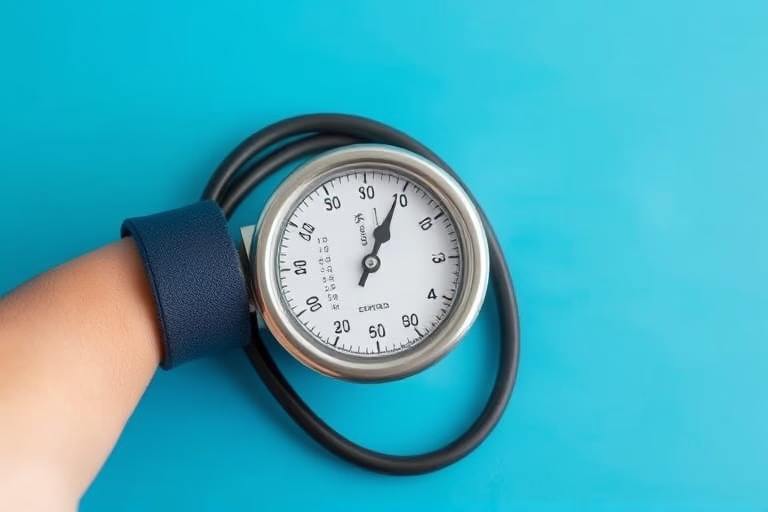Does low iron increase blood pressure? This is a common concern that resonates with many individuals who face health challenges related to blood pressure management and anemia. Iron plays a crucial role in the production of hemoglobin, which carries oxygen in the blood. When iron levels are low, it can lead to conditions such as anemia, which may subsequently affect overall health, including blood pressure. Understanding the connection between low iron levels and blood pressure is vital for maintaining optimal health.
In this article, we will explore the relationship between low iron levels and blood pressure, covering various aspects that surround this important health issue. Low iron can increase the chances of developing anemia, which in turn can impact the way blood vessels function, potentially leading to elevated blood pressure. Furthermore, we will examine the symptoms of low iron, dietary sources rich in iron, and lifestyle changes that might help in managing both iron levels and blood pressure effectively.
Understanding Iron Deficiency
Iron is an essential mineral that the body needs to produce hemoglobin. Hemoglobin is a protein in red blood cells that carries oxygen from the lungs to the rest of the body. When iron levels drop, the body is unable to produce enough hemoglobin, resulting in iron-deficiency anemia. This condition may lead to various symptoms, such as fatigue, weakness, pale skin, and shortness of breath. Understanding the impact of iron deficiency helps in recognizing its importance in overall well-being.
How Low Iron Affects Blood Pressure
Low iron levels can affect the cardiovascular system in several ways. Anemia can reduce the blood’s ability to carry oxygen, leading to a compensatory increase in heart rate and potentially raising blood pressure. Additionally, the body may react to low oxygen levels by constricting blood vessels, further increasing pressure. This complex interaction highlights the importance of maintaining adequate iron levels to ensure the heart and vascular system function properly.
Symptoms of Low Iron and Anemia
Recognizing the symptoms of low iron is critical for early intervention. Common signs include fatigue, weakness, dizziness, headaches, and pale skin. Some individuals may also experience cold hands and feet and brittle nails. If you suspect low iron or anemia, consulting a healthcare provider for tests is essential for diagnosis and management to prevent complications affecting blood pressure and overall health.
Dietary Sources of Iron
To maintain healthy iron levels, it is crucial to consume foods rich in iron. Sources include red meat, poultry, fish, lentils, beans, tofu, spinach, and fortified cereals. Pairing iron-rich foods with vitamin C-rich foods, such as oranges and bell peppers, can enhance iron absorption in the body. Being mindful of iron-rich diets is key in preventing deficiency and promoting optimal blood pressure levels.
Role of Vitamin C in Iron Absorption
Vitamin C plays a significant role in enhancing iron absorption in the intestines. Consuming vitamin C-rich foods, such as citrus fruits, strawberries, and broccoli, alongside iron sources can significantly improve the uptake of iron in the body. This simple dietary adjustment can support individuals struggling with low iron and contribute to better management of blood pressure.
Lifestyle Changes to Boost Iron Levels
In addition to dietary changes, adopting a healthier lifestyle can help boost iron levels naturally. Regular physical activity, managing stress levels, and ensuring adequate sleep can all play a role in improving overall health. Furthermore, avoiding excessive consumption of caffeine and certain medications that can hinder iron absorption may be beneficial in maintaining adequate iron levels.
Testing and Diagnosis of Iron Deficiency
If you suspect that you may have low iron levels, it is essential to seek medical advice. Healthcare providers typically conduct blood tests to evaluate hemoglobin levels and serum ferritin to diagnose iron deficiency. Effectively managing diagnosed cases through monitoring and nutrition can help in preventing issues related to blood pressure.
Interventions for Low Iron and High Blood Pressure
Individuals dealing with low iron and high blood pressure may benefit from specific interventions, including dietary changes and possibly iron supplementation. However, supplementation should always be done under medical supervision as excess iron can also lead to health issues. A balanced approach is crucial when addressing both iron levels and blood pressure.
Consulting with Healthcare Professionals
Working with healthcare professionals is essential for managing low iron and blood pressure effectively. Doctors may provide personalized advice, monitoring, and treatment options tailored to individual needs. This collaborative effort ensures that health goals are met while minimizing risks associated with both conditions.
In conclusion, low iron can indeed influence blood pressure. Maintaining optimal iron levels is essential for preventing anemia, which can lead to complications that impact hypertension. Awareness of dietary sources of iron, symptoms of deficiency, and preventive measures can foster better health outcomes. By making informed lifestyle changes and consulting healthcare professionals, individuals can effectively manage their iron levels and blood pressure, enhancing their quality of life.
Frequently Asked Questions
1. Can low iron levels cause high blood pressure?
Yes, low iron levels can lead to anemia, which may result in higher blood pressure due to the body’s compensatory mechanisms.
2. What foods are high in iron?
Iron-rich foods include red meat, poultry, fish, lentils, beans, tofu, spinach, and fortified cereals.
3. How can I increase my iron absorption?
Pairing iron-rich foods with vitamin C-rich foods can enhance iron absorption significantly.
4. When should I see a doctor for low iron?
If you experience symptoms such as fatigue, weakness, or dizziness, it’s essential to consult a healthcare provider for testing.
5. Can iron supplements help with blood pressure?
Iron supplements can help improve low iron levels, but they should only be taken under medical supervision to prevent possible adverse effects.
Further Reading
What Type of Psychotherapy Is Best for Anxiety?







